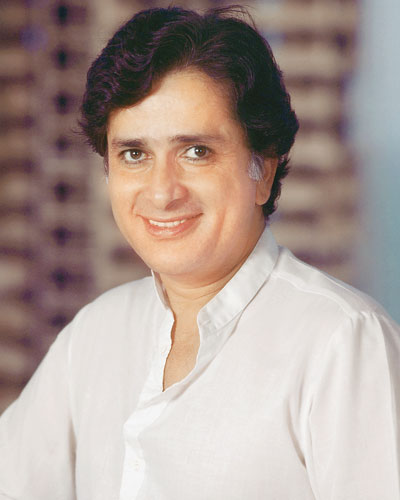FINAL GOODBYE
- 23 Dec - 29 Dec, 2023

Bollywood has produced a great number of actors who have represented India at the international level during the past 50 years but none of these actors could match the versatility, adaptability and brilliance of Shashi Kapoor. The veteran actor worked in more than 175 films throughout his career and managed to brave the Rajesh Khanna phenomenon as well as the emergence of the Angry Young Man.
The youngest of Kapoor brothers was born in Kolkata on March 18, 1938 and was 14 years younger to his eldest brother Raj and seven years to Shammi. Both Raj and Shammi were already established film stars when Shashi made his debut in 1961 through Dharmaputra as the leading man. Then came India’s first multi-starrer Waqt where he was pitted against Sunil Dutt and Raj Kumar, which was followed by countless hits and songs that are still unforgettable. After that, there was no looking back, as with his dashing looks and debonair personality, he carved a separate identity for himself and became the first Indian actor to go global.
With Amitabh Bachchan, Shashi formed a jodi that appeared in as many as a dozen films with most of them becoming classics. He was the brother who asked Big B to sign the papers before he burst into ‘jao pehle us aadmi se sign le ke aao’ routine; it was he who replied with ‘mere paas maa hai’ when Big B’s character asked him about his worldly assets. When he turned blind in Suhaag, it was Bachchan who taught him how to behave like a normal person; they were in Trishul, Shaan, Silsila as well as Kabhi Kabhie as brothers, while in their final appearance in Akayla, Shashi played Amitabh’s boss as he had gained a lot of weight, a curse that affected everyone in the Kapoor clan.
Shashi Kapoor will always have a special place in the history of not just Bollywood but world cinema. He was one of the first actors to cross over to English films and managed a fan following that can be judged from the fact that after his death, people from the United States of America and United Kingdom tweeted about him. He was a regular when it came to Ivory Merchant productions such as The Householder (1963), Shakespeare Wallah (1965), Bombay Talkie (1970), The Deceivers (1988) and Side Streets (1998), while his final film appearance as a narrator was also in Jinnah a Jamil Dehalvi-film based on Quaid-e-Azam Muhammad Ali Jinnah. Shashi Kapoor played the narrator in the film and shared the screen with Christopher Lee as well as James Fox, Richard Lintern, Shakeel, Talat Hussain and many others.
He has the distinction of working with the most beautiful ladies as well as the best of directors in the business. From Mumtaz to Asha Parekh, from Waheeda Rehman to Sharmila Tagore, from Raakhee to Rekha, from Zeenat Aman to Parveen Babi, he romanced all of them on-screen. As for the directors, from Raj Kapoor to Yash Chopra, Nasir Hussain to Ramesh Sippy, Manoj Kumar to Shyam Benegal, he performed on the shots of the best. He even had a short stint as a producer (one film as a director) in Bollywood where he was the man behind Junoon, Kalyug, Ustav and Ajooba.
Shashi Kapoor may have been the younger brother of Raj and Shammi Kapoor but he never let that affect his performance. He was considered for all kinds of roles in Bollywood, be it of a pauper or a king, a street-smart person or a villager or above all, an honest cop. Although he and his wife Jennifer Kendal were theatre veterans who did equally well in films, their children couldn’t carry the torch forward. Kunal Kapoor, Karan Kapoor, and Sanjana Kapoor did try their hand at acting but couldn’t fare well. In fact, Kunal became an ad filmmaker, Karan became a photographer and Sanjana runs her own theatre company. Along with millions of Shashi Kapoor fans, they were left saddened by the death of their favourite actor who was loveable till his final breath. •
COMMENTS